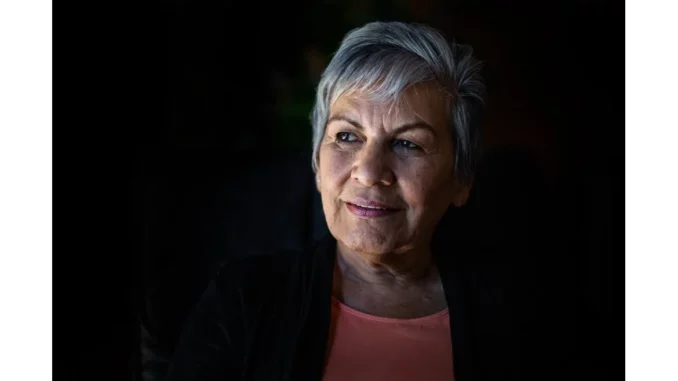
In the quiet sanctuary of her living room, Laura Bennett, a yoga enthusiast and mental health advocate, has discovered that the practice of yoga offers more than just physical flexibility. It provides a calming refuge and a sense of balance that is particularly beneficial for older adults managing ADHD. As I settled into a conversation with her, it became clear how the gentle art of yoga has become an integral part of her daily routine and a cornerstone of her approach to mental wellness.
Elegancia – Wellness and tranquillity in the comfort of your home.
Laura began our discussion by highlighting the unique challenges that older adults with ADHD face. “For many older adults, ADHD isn’t something that was diagnosed in childhood,” she explained. “Many have lived their lives managing symptoms without understanding the underlying cause.” This late-in-life revelation often comes with mixed emotions, but Laura has found solace in the practice of yoga.
The gentle flow of yoga, she noted, allows for a rare moment of peace and concentration. “Yoga creates a space where the mind can quiet down,” she said, her voice serene and assured. “For someone with ADHD, finding that space of mental stillness is invaluable.”
Laura’s journey with yoga began several years ago when she was seeking a way to manage her own symptoms of anxiety and restlessness. “I was sceptical at first,” she admitted with a laugh. “I thought yoga was just stretching in fancy poses. But it’s so much more than that. It’s about connecting with your breath, being present in the moment, and finding a sense of inner calm.”
She described how she gradually integrated yoga into her daily routine, starting with short sessions at home. “I found some wonderful online classes that were perfect for beginners,” she recounted. “It was important to me to practice in a space where I felt comfortable and not intimidated by others.”
As we delved deeper, Laura shared insights gained from listening to experts like Dr David Goodman, a leading voice in ADHD research. “Dr Goodman emphasises the importance of holistic approaches to managing ADHD, particularly in older adults,” she said. “His guidance has been instrumental in shaping my understanding of how yoga can complement traditional treatments.”
Laura was keen to point out that yoga is not a cure-all but rather a tool that supports overall well-being. “It’s about finding what works best for you,” she remarked. “For me, it’s yoga. For someone else, it might be meditation or something entirely different.”
One of the most profound benefits Laura has experienced is the improvement in her focus. “Before yoga, my mind was like a browser with too many tabs open,” she compared. “But now, I’ve learned to close those tabs, one breath at a time.” This newfound focus has spilled over into other areas of her life, enhancing her ability to handle daily tasks and enjoy hobbies that once felt overwhelming.
Laura also touched upon the communal aspect of yoga, despite practising at home. “There’s a wonderful online community of yoga practitioners,” she highlighted. “We share experiences, tips, and encouragement. It’s comforting to know that even though we’re practising individually, we’re not alone.”
As our conversation drew to a close, Laura left me with a piece of advice for anyone considering yoga as part of their mental health routine. “Start small and be kind to yourself,” she advised. “It’s not about achieving the perfect pose or keeping up with anyone else. It’s about finding your own rhythm and allowing yourself the grace to grow.”
In recounting Laura Bennett’s journey, it’s evident that yoga offers a unique blend of physical and mental benefits, especially for older adults navigating the complexities of ADHD. Her story is a testament to the power of self-care and the pursuit of inner peace, reminding us all that tranquillity is just a breath away.
Sarah Dale


Be the first to comment